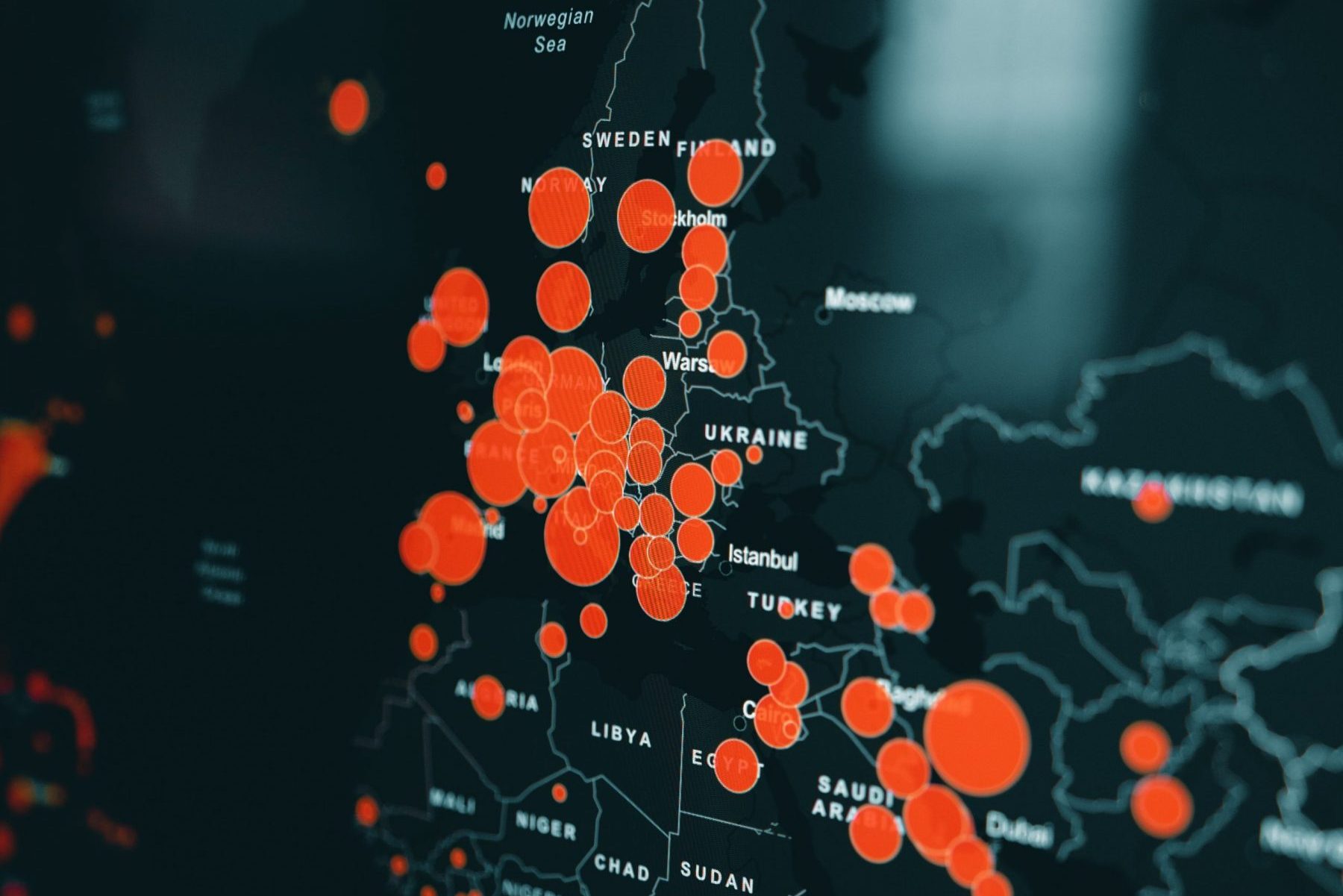How is Europe handling the pandemic? The short answer is that it’s doing its best. But let’s dive in and look at some of the European countries more closely. In the U.S., we’re hearing the words “lockdown” and “quarantine” thrown around, yet nothing like what’s suggested is what’s really happening — not since March, anyway. However, in Europe those are words they hear often, and they actually do occur.
Obviously, each country is taking measures into its own hands and doing what it thinks is more appropriate for its citizens’ safety. However, during the summer, Europe seemed to forget that we were still in the middle of a global pandemic. That meant traveling and taking bigger risks. When everyone came back from vacation, the consequences came into play, and they’ve been suffering through it ever since. So, let’s focus on how certain places are trying to deal with them.
France
As of Nov. 6, France has reported over 1.6 million cases and just over 39,000 deaths. And it’s only been growing. This has been one of the most affected countries in Europe. President Emmanuel Macron has been aware, which is why, on Oct. 29, he declared a second lockdown.
During this second lockdown, non-essential businesses will remain closed — including restaurants and bars. The only establishments excluded are factories and schools. There’s also a curfew in place from 9 p.m. to 6 a.m. These restrictions are set to last until Dec. 1.
So how are these things affecting small businesses? Behind them are families that depend on their success to bring food to their tables, and closing up for as long as a month is as damaging as you’d expect. But it is particularly hard after having to do it for a second time this year.
In Saint-Denis, lines at food assistance programs (Programme National de l’Aide Alimentaire) have only grown, according to a video-report for France24. Many of the people seeking assistance work for restaurants or hotels, who are just as affected (if not more) by the closing of their workplaces. The video features heartbreaking moments: Viewers can see women showing their desperation when complications arise, raising the specter of returning home empty-handed.
It’s not just about being stuck at home for a month; it’s about putting people like this first. We should be doing everything possible to help small businesses and donating to help organizations provide people like this with what we all have a right to.
England
On Nov. 4, Boris Johnson announced he was imposing a second lockdown. These restrictions are similar to France’s — restaurants, bars and non-essential businesses closed. England’s lockdown came just days after France and Germany announced theirs.
During his announcement, Johnson said the second wave could exceed the number of deaths they’ve seen so far, and he hopes this lockdown will prevent as many as they can. It’s obviously not as strict as the previous one, since schools and certain workplaces will remain open. However, if it’s done right, the second lockdown will provide the country with the safety it needs to keep the virus under control.
Johnson also mentioned how difficult it would be for families and small business owners. This is why the furlough system — a temporary leave of absence for workers where they still receive their wages — will remain throughout November, in the hopes that in December, businesses will be able to open again.
December, of course, brings the inevitable talk of the holidays. Johnson mentioned that this year they will be different. But again, if done right this month, they’re hoping some exceptions can be made, safely.
The country is also taking into account its citizens’ mental health, especially those that live alone and must quarantine by themselves.
Spain
During the summer, Spain — much like every other country in the world — got comfortable. It seemed everyone had grown used to living with the virus. Wear masks wherever you go, distance whenever you can and wash your hands as much as possible. And maybe traveling for vacation to other places in Europe felt scarier because they knew what things were like in their own territory — but outside? Who knows?
So, believe it or not, beaches were packed despite social distancing rules, roads still witnessed traffic and terminals still housed thousands of national travelers. At the time it seemed concerning, but not enough to cancel vacation, clearly.
I’m sure some families debated canceling their trips. I know mine did. I was in Madrid visiting my family for most of July, and we had planned a trip up north. We probably debated canceling the whole thing around three times in fear of the virus’s threat to every area of the country. All of this traveling, of course, had to have an outcome somewhere, and these countries are suffering for it now.
With school beginning and everyone returning from their vacations, numbers began to rise again. Parts of the country were forced to go into lockdown, but that didn’t — and still doesn’t — sit well with most of its citizens. Much like every other country in the world, these lockdowns are hurting their economies and, once again, families have the fear of not being able to put food on the table.
Spain has seen protests in its streets for this reason. In Madrid, for example, the state’s government is handling the whole situation quite poorly. Small businesses are still waiting for financial help from the last lockdown and, unfortunately, a lot of them won’t be able to survive a second one. And neither will its citizens if the country continues with these restrictions.
A few weeks ago, the president of the state, Isabel Díaz Ayuso, put into place a curfew from midnight to 6 a.m., which is rather pointless since people are asleep. And there’s an exception — you’re allowed to stay at someone else’s house if you remain there for the whole night and there are less than six people.
There are other restrictions that make more sense than this one and are keeping Madrid’s citizens safe. During long weekends, of which this month has quite a few, roads are controlled by the police to make sure no one is leaving or entering the state, bars and restaurants must close at 10 p.m. (which is early for Spain) and people in high number areas in Madrid have been asked to stay at home.
Countries in Europe are indeed doing their best. It’s hard to manage a whole country when under such exceptional circumstances, so it’s important for all of us to follow guidelines and make sure we’re doing our best to keep everyone as safe as possible.

















